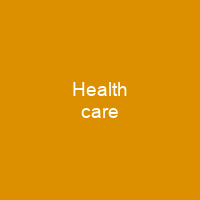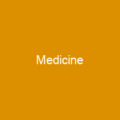Understanding the Pillars of Healthcare: A Comprehensive Guide
Imagine a world where every individual has access to quality healthcare, but how do we get there? Let’s dive into the intricate layers that make up our health care systems and explore their significance.
The Foundation of Healthcare: Primary Care
Primary care is often likened to the cornerstone of a building. It’s where individuals first seek help for acute or chronic conditions, from common colds to complex illnesses like diabetes and hypertension. Without strong primary care, the entire healthcare system can crumble. Think about it: if your local general practitioner isn’t equipped with the knowledge and tools to manage a wide range of health issues, where do you turn?
Chronic Conditions and Beyond
Primary care isn’t just about treating illnesses; it’s also about managing chronic conditions. How many times have you heard that prevention is better than cure? In primary care, this mantra becomes a reality through regular check-ups, screenings, and lifestyle advice. Common chronic issues like hypertension, diabetes, asthma, COPD, depression, anxiety, back pain, arthritis, and thyroid dysfunction are all managed here.
Secondary and Tertiary Care: The Specialized Layers
Once primary care can no longer manage a condition, patients are referred to secondary or tertiary care. Secondary care involves acute care services like hospital emergency departments, skilled attendance during childbirth, intensive care units, and medical imaging. Think of these as the specialized floors in our healthcare building.
Tertiary Care: The Expertise Ceiling
Tertiary care is where highly specialized consultative health services are provided. These are usually for inpatients on referral from primary or secondary health professionals. Imagine these as the top floors of our healthcare building, reserved for the most complex and critical cases.
Home and Community Care: The Heartbeat of Healthcare
Healthcare isn’t just about hospitals; it’s also about home and community care. How many times have you seen elderly individuals living independently in their homes, thanks to the support of community services? These services include public health interventions, support for self-care, home care, long-term care, assisted living, and treatment for substance use disorders.
Challenges and Solutions
One challenge is ensuring that family members and care workers have aligned attitudes towards joint efforts. How can we design ICT solutions to bridge this gap? Programs like the Consumer Directed Personal Assistant Program allow family members to care for loved ones without giving up their income, making home care more accessible.
Evaluating Healthcare: Quality and Access
Evaluating healthcare is crucial. How do we ensure that our healthcare systems are delivering the best possible outcomes? Health care ratings provide insights into the process of care, health care structures, and outcomes through measures like health plan quality, hospital quality, patient experience, physician quality, and more.
Achieving Equity in Healthcare
Access to healthcare varies across countries, communities, and individuals. How can we ensure that everyone has equal access? Factors like financial limitations, geographical barriers, sociocultural expectations, and personal limitations play a significant role. Improving access is key to improving overall health outcomes.
The Healthcare Industry: A Multifaceted Landscape
The healthcare industry encompasses many related sectors that deliver health care services and products. From hospitals to medical devices, each sector plays a vital role in our healthcare ecosystem. These include hospital activities, medical and dental practice activities, other human health activities, biotechnology, diagnostic laboratories, and substances.
The Economic Impact of Healthcare
The healthcare industry is a significant contributor to the economy. According to the Global Industry Classification Standard, it accounts for substantial revenue and exports. How does spending on healthcare correlate with life expectancy? While countries like the US spend more, they don’t necessarily see better outcomes.
Research: The Driving Force of Healthcare Innovation
Health care research is essential for improving the quantity and quality of health interventions. How do we leverage scientific advancements to benefit patients? Key advances include the eradication of illness through diagnosis and effective treatment, biomedical research, and pharmaceutical research.
The Role of Artificial Intelligence in Healthcare
Artificial intelligence is revolutionizing healthcare. How can AI develop clinically useful systems that are timely, sensitive to change, culturally sensitive, low-burden, low-cost, and built into standard procedures? Initiatives like these are crucial for enhancing the efficiency and effectiveness of our healthcare systems.
Funding Healthcare: The Financial Pillars
The funding of healthcare is complex. How do different countries finance their healthcare systems? There are five primary methods: general taxation, social health insurance, voluntary or private health insurance, out-of-pocket payments, and donations to health charities.
The Global Perspective
In 2011, OECD countries spent an average of 9.3% of their GDP on healthcare, while the US spent 17.7%, the highest amount among OECD member countries. Does this correlation between spending and life expectancy hold true? Despite high costs, the US ranks only 26th in life expectancy at birth.
Administration and Regulation: The Backbone of Healthcare
Effective administration and regulation are crucial for delivering quality healthcare. How do electronic health records (EHR), electronic medical records (EMR), health information exchange (HIE), medical practice management software (MPM), and personal health records (PHR) contribute to this? These technologies streamline care, improve patient outcomes, and enhance the overall efficiency of healthcare systems.
In conclusion, healthcare is a multifaceted system that requires a comprehensive approach. From primary care to advanced research, each component plays a vital role in ensuring that individuals receive the best possible care. By understanding these layers, we can work towards creating more equitable and effective healthcare systems for all.

You want to know more about Health care?
This page is based on the article Health care published in Wikipedia (retrieved on March 14, 2025) and was automatically summarized using artificial intelligence.





